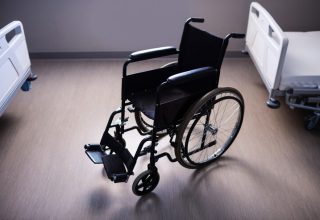Eight Tips For Managing Towering Cancer Treatment
The journey of fighting cancer is, without a doubt, a grueling one; it requires strong will, determination, and insistence on recovery.
Cancer has a terrible impact on the patient’s physical and mental health, and cancer treatment can add to the burden.
Cancer treatment can be quite expensive, and chemotherapy can further deteriorate your health. If you have been diagnosed with cancer and are fighting for your health, know that you have performed a tremendous feat, and don’t give up.
There are ways you can make the journey easier, both in terms of cancer treatment costs and its side effects.
Your lifestyle and choices can have a major impact on your treatment process and can hinder or speed up recovery. The following tips will help you make your time post-cancer diagnosis much easier.
Contents
Top 8 Tips For Managing Towering Cancer Treatment

1. Get an estimate of the treatment and living costs
Regardless of whether you feel financially stable or troubled, remember that it is always important to know what you are up against.
The costs of cancer recovery differ from patient to patient. Since there are various types of cancers, treatment options, healthcare services, tests, etc., they add up to the cost of cancer recovery, including everything from drugs, childcare, and travel, to hospital charges and medicine costs.
You should outline estimated costs for clinical trials and look at the costs of various treatments. Always keep your mind open to financial options like patient assistance, payment plans, charity, and cancer funds.
Many organizations are designed to offer emotional, financial, and practical assistance to cancer patients.
2. Seek legal compensation through asbestos trust funds
If you suspect that your cancer resulted from exposure to asbestos at your workplace, you can take legal action and seek compensation from asbestos trust funds.
There are many tips on how to obtain compensation available on many online platforms. Yes, it is difficult to meet the eligibility criteria for the asbestos funds, but never impossible.
You can increase the chances of winning a lawsuit by seeking a good attorney and getting a consultation. A straightforward diagnosis from a professional suggesting that asbestos exposure indeed contributed to your illness can help greatly.
3. Know your health insurance policy
After being diagnosed with a serious medical condition, the first thing our mind flies to is whether our health insurance will cover the medical bills.
You must first be fully aware of your healthcare policy, and then only can you create a detailed plan on how to manage the costs.
Therefore, hit up your health insurance company and discuss the benefits in your contract. Talk to them about whether the policy covers the bills of specialists recommended by the doctors.
Once you are clear about the policy, discuss how the payments will be made and how the treatments not covered by the health insurance company will be approved.
4. Manage costs on paid medicine
If you are financially burdened, do not think of compromising on pain medicine, even if it might seem the most trivial of all cancer medication.
When trying a new medicine, instead of buying the medicine in advance for the days ahead, first ask for medicine samples so that you can see if they are working out for you.
Without a trial or advice from a medical professional or specialist, your life will only worsen. Ask your healthcare provider about generic brands for the initially prescribed medicine.
You can also look for discount drug programs that some organizations, grocery stores, drugstores, and discount chains offer for prescription drugs.
To register for such programs, you need to state your location, income, and medicines.
5. Accept all emotional and practical help you get
In crucial times when undergoing treatment for a serious medical illness, your social network plays a very important role.
Research has shown that compared to cancer patients who had the least social support, those who had the most support from others lived longer and had a better quality of life.
If your friends or family offer emotional or practical support, do not feel embarrassed to accept it. If you lack a support system, you can join a support group and vent out to others undergoing a similar experience.
Your friends and family can offer great practical support by running necessary errands, providing transportation, making meals, and doing household chores.
6. Develop a coping strategy
Going through cancer treatment is an excruciating and emotionally draining task, and the journey is different for different individuals.
Work on developing your coping strategy by incorporating relaxation techniques, remaining busy, seeking spiritual support, spending time with yourself, journaling, etc.
Change is stressful and can lower self-esteem if you are not coping well. For some, this can escalate to depression and anxiety. However, with a strong coping mechanism in place, you can overcome any hurdle.
7. Eat healthily
A healthy diet plays an important role in managing the side effects of cancer and its treatment, recovering well, and lowering the future risk of cancer.
Keep your gut healthy by eating prebiotic and probiotic foods. Remember to include various vegetables and high-fiber food like whole grains, peas, nuts, etc. in your diet.
Also, avoid processed meat and red meat like lamb or pork and opt for fish or poultry instead.
As for your eating habits, it is best to eat in small portions and avoid high-calorie foods low in nutrients.
Especially when you are undergoing cancer treatment like chemotherapy, you should work with a dietitian specializing in oncology.
8. Stay active
Both during and after cancer treatment and home therapy, physical exercise is necessary as it minimizes fatigue, prevents weight gain, and strengthens your body.
Consult your healthcare providers about the best way to incorporate physical activity into your schedule. An ideal fitness routine should include aerobic exercise, strength activities, and walking.
Don’t sit or lie down for long periods and break long sitting periods with short walks around the house. To incorporate activity with enjoyment, you can plan activities with your family and friends.
Staying active is known to minimize physical side effects like neuropathy, osteoporosis, lymphedema, and nausea.
It lowers the risk of anxiety and depression, prevents muscle loss, enhances sleep, improves survival rates, and makes treatment more effective.
Final words
Being diagnosed with cancer and undergoing treatment is one exhausting journey. Not having any guidance about getting through it effectively can worsen the situation.
Plan out how to get through cancer treatment and head to complete recovery; you can achieve this by managing your bills, knowing your healthcare policy and any legal compensation you are entitled to, accepting help, eating healthy, and staying active.
Read Also:
- Cancer Prevention: 7 Ways to Reduce Your Risk
- How Loneliness Harms Your Physical And Mental Health
- Beyond Blues: 8 Reasons To Consider Inpatient Mental Health Treatment
- How Can Organizations Support Their Employees’ Mental Health?



